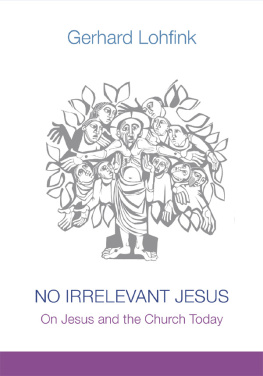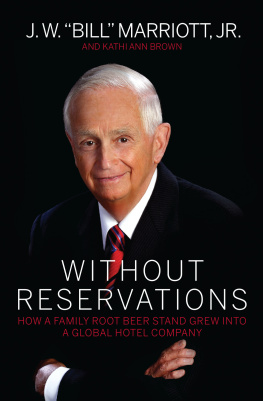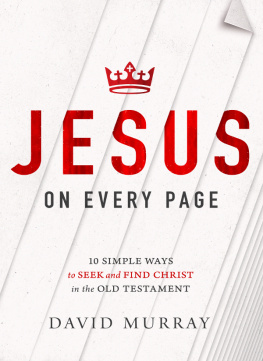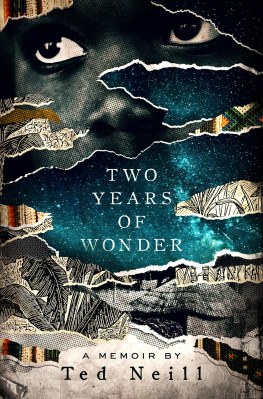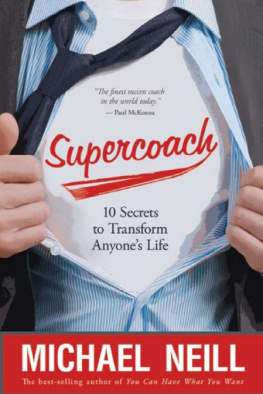Introduction
When Sheri Dew, Laurel Day, and Emily Watts from Deseret Book asked to meet with me and told me they hoped I might be willing to write a book, I was astonished. Me? A book? What would I, a small-town girl from Louisiana, have to say in a whole book? To my surprise, they suggested that it was largely because of my less-typical circumstances that they had comethey thought my perspective as an adult convert from the South might be unique and even needed. As I pondered that, I realized that the opportunity to bear my witness of Heavenly Father and of the Savior, the Lord Jesus Christ, and hopefully to help draw women closer to Them, was one that I could not pass up, though it took me five months to get the courage to accept their invitation.
Much of my youth was influenced by my seeking for the true and living God. Moroni teaches us: And now, I would commend you to seek this Jesus of whom the prophets and apostles have written (Ether 12:41). I wanted to know the Savior better, to understand His will, to become a true disciple of Christ in my daily life.
I come from the Deep South of the United States, and in my youth the words of old Protestant hymns taught me of a true disciples heartone that has been changed by the love of Christ. Consider these lyrics, so dear to me:
Have Thine own way, Lord! Have Thine own way!
Thou art the Potter, I am the clay.
Mold me and make me after Thy will,
While I am waiting, yielded and still.
(Have Thine Own Way, Lord, Adelaide A. Pollard, 1907)
How do we, a modern, busy, competitive people, become yielded and still? How do we make the Lords ways our ways?
I believe we begin our search by learning of Him: going to pure scriptural sources, studying with an open heart and mind, and praying for understanding. As our trust in Him grows, we seek to do His will, and we search for answers that will help us understand His doctrine. As we learn and act on His doctrine, the grace of God will abide in us.
In these pages, I would like to speak to your heart, who you are, and how you may connect to God and perhaps feel more keenly His love and guidance. Imagine that you are going to put your heart out in front of you and take a look at what is inside: your feelings, your hopes, your faith, your fears, your attitudes. After a careful search of those things and a self-evaluation, I hope as you seek this Jesus you can more effectively pray to know if there is something Heavenly Father would have you change or remove from your life, and how He would have you increase. I testify that He will be with you in all your circumstances, and especially in your hardest moments, when it is all you can do to endure. He wants you to live a joyful life, and He makes that possible for all who follow Him with a yielded, obedient heart.
My own lifelong search for the Savior began with my upbringing in another faith. The path took a considerable turn when, in my twenties, I began meeting with missionaries from The Church of Jesus Christ of Latter-day Saints. But my conversion and baptism were not the end of my seeking, any more than they would be for one born in the covenant of the restored gospel of Jesus Christ. I share these stories as a starting placeas, indeed, all of us must have a starting place in our journey home to our Heavenly Father.
Chapter 1
The Search Begins
God loved me. He knew twelve-year-old me.
He was real. That certain knowledge bound my heart and soul to Him.
When I was born, my maternal grandmother sewed my christening gown out of Sea Island cotton. Light and flowing, edged with delicate lace, this finely stitched offering spoke of the best she had to give her first grandchild and the Lord. In the South, a babys christening day is nothing short of ceremonial. Swathed in several yards of this batiste, with a full congregation looking on, I was sprinkled with water by the Methodist minister and given the name of my grandmother, Evelyn Neill. Though oblivious to the dress, the christening, or the family festivities that followed, I had begun my religious rites of passage surrounded by father, mother, grandparents, and a supporting cast of aunts and uncles. According to my paternal grandmother, who had a delightful way of embellishing family lore, our ancestral line of churchgoers stretched back to Susanna Wesley, mother of the founder of the Methodist Church, John Wesley.
As a nine-year-old I officially joined the Methodist Church. With surprising clarity I remember exactly what the minister asked me that Sunday morning as I stood at the altar, presenting myself for membership. Will you pledge your time, your talents, your gifts, and your service to the Methodist Church? he asked quietly. I answered just as quietly, Yes. And so it began. I belonged to a church.
What did that mean? I wondered. At the time, to me it meant going to church with family each week, running through the Sunday school building to get a seat next to my friend, and gathering in the fellowship hall for church dinners. It meant watching the way Methodists treated one another with respect and friendliness. But most of all, several aspects of church membership took root in my early life, planted by my parents, George and Antonia Foote. First, an understanding grew from my parents pattern of honoring the Sabbath day. Without saying a word, Mother taught me a lesson about honoring Sundays when, each Saturday afternoon, she applied liquid polish to the shoes of my younger brothers and placed them carefully in an open window to dry. The weekly sight of that long line of Sunday shoes drying on the windowsill spoke volumes to my young understanding. I could see that Sunday was a different day, a day apart from the scuffed shoes of the week, a day for offering our cleanest and best selves to the Lord. Mother wanted to honor God appropriately, and polished shoes were a sign of her reverence for the Lords day. I learned on Saturday that the following day called for thoughtful preparation.
On Sunday morning there was an air of expectancy as all nine of us crowded into the family station wagon to head to church. It was the duty of Daddy to get us in the car and across the towns railroad tracks before the Sunday morning train made us late. His serious anxiety grew if we heard the distant train whistle as we barreled down the road toward the crossing. We knew he wanted us to be quietly settled in our customary pew well ahead of the ministers welcome, but we children secretly loved getting caught by the train and counting the two hundred or more cars flying by. Still, Daddys reverent attitude about getting to church on time and in the right frame of mind impressed itself upon me, train excitement notwithstanding.
One Sunday, ensconced on our pew, I pulled out a skein of yarn and proceeded to crochet. My eleven-year-old pride swelled at this newfound skill, and I managed to ignore my parents discomfort. After all, I reasoned, I was being quiet and at the same time listening and accomplishing something. After a few minutes of thoughtful frowning and glances between my parents, Daddy leaned over and told me to put my handiwork away. On the way home I asked them testily why crocheting during the sermon was wrong. To their credit, they pondered my question. Mother simply responded that it just wasnt something we do. Daddy said that we shouldnt work on Sunday, and something about it wasnt appropriate conduct during church. At first I laughed to myself that crocheting a shawl was counted as workbut I felt, almost more than I understood, a greater lesson. They were teaching me that worshipping the Lord requires our truehearted attention.





